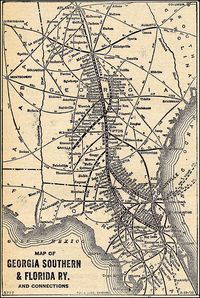 When asked for any concrete examples of education improving
because of school consolidation, not one person could come up
with one: not CUEE, not the Chamber, not their invited experts.
Their invited experts established that consolidation in Troup County
not only didn’t save money, it required a bond issue.
And it took four or five years of the hardest work they’d ever done,
even though they couldn’t give any evidence that it improved education.
It was like that on almost every point: the Chamber and CUEE either
couldn’t answer the simplest questions, or even more frequently
demolished their own case.
When asked for any concrete examples of education improving
because of school consolidation, not one person could come up
with one: not CUEE, not the Chamber, not their invited experts.
Their invited experts established that consolidation in Troup County
not only didn’t save money, it required a bond issue.
And it took four or five years of the hardest work they’d ever done,
even though they couldn’t give any evidence that it improved education.
It was like that on almost every point: the Chamber and CUEE either
couldn’t answer the simplest questions, or even more frequently
demolished their own case.
The last question asked to give an example of any company that had declined to come in because of multiple school systems. Not only could nobody give an example, but someone, I believe it was Walter Hobgood, stood up at the podium and said when he was working for a large company he had never encountered a case where they looked at the number of school systems.
Early on Chamber Chair Tom Gooding went on at great length about Continue reading












